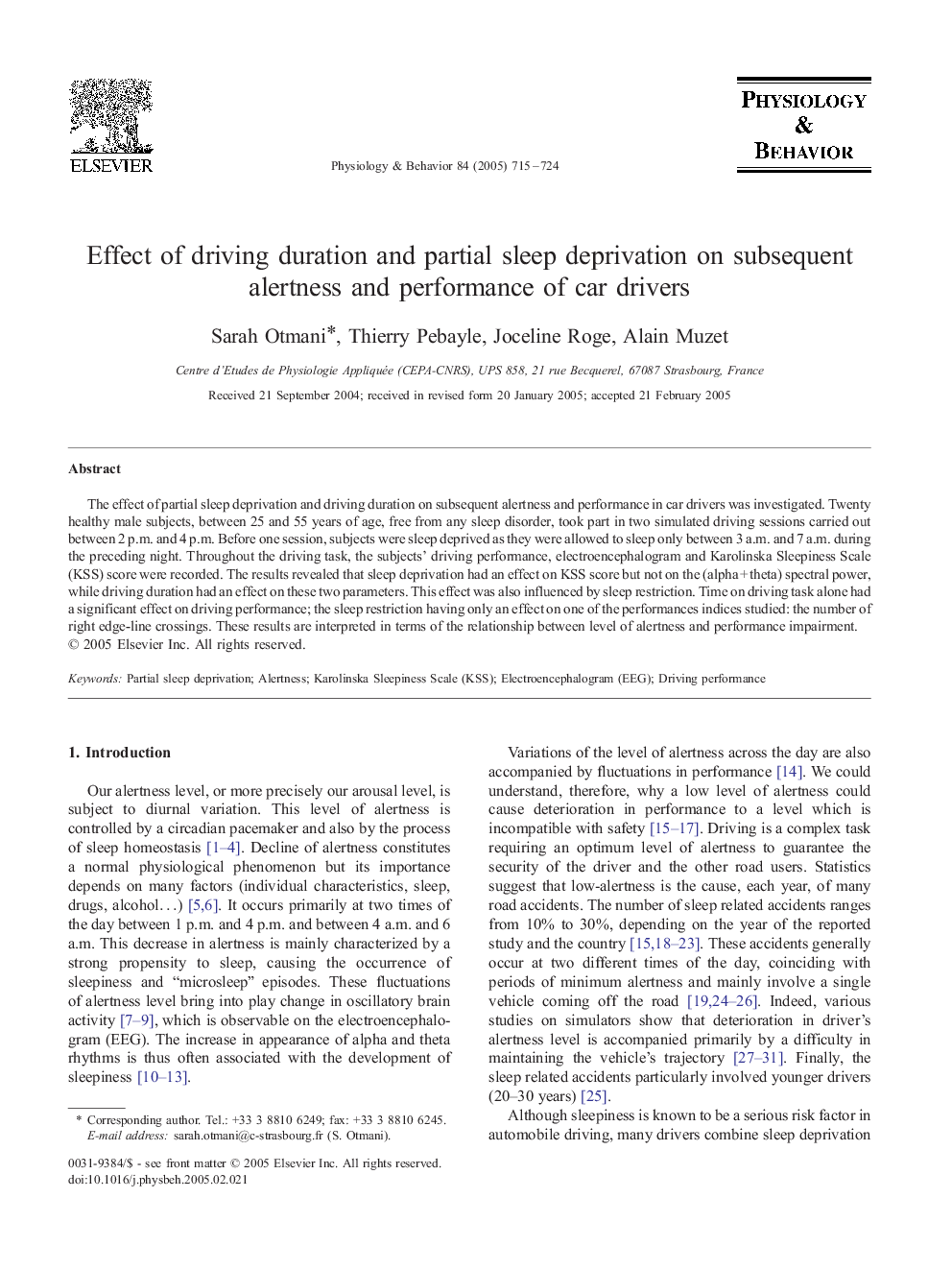| Article ID | Journal | Published Year | Pages | File Type |
|---|---|---|---|---|
| 9149607 | Physiology & Behavior | 2005 | 10 Pages |
Abstract
The effect of partial sleep deprivation and driving duration on subsequent alertness and performance in car drivers was investigated. Twenty healthy male subjects, between 25 and 55 years of age, free from any sleep disorder, took part in two simulated driving sessions carried out between 2 p.m. and 4 p.m. Before one session, subjects were sleep deprived as they were allowed to sleep only between 3 a.m. and 7 a.m. during the preceding night. Throughout the driving task, the subjects' driving performance, electroencephalogram and Karolinska Sleepiness Scale (KSS) score were recorded. The results revealed that sleep deprivation had an effect on KSS score but not on the (alpha + theta) spectral power, while driving duration had an effect on these two parameters. This effect was also influenced by sleep restriction. Time on driving task alone had a significant effect on driving performance; the sleep restriction having only an effect on one of the performances indices studied: the number of right edge-line crossings. These results are interpreted in terms of the relationship between level of alertness and performance impairment.
Related Topics
Life Sciences
Biochemistry, Genetics and Molecular Biology
Physiology
Authors
Sarah Otmani, Thierry Pebayle, Joceline Roge, Alain Muzet,
